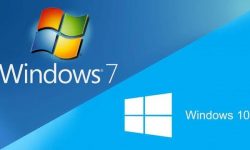If you are using Windows 7 Professional or Windows 7 Enterprise, you might want to think about switching to a newer operating system. This is because Microsoft will no longer provide extended security updates starting tomorrow, leaving customers vulnerable to security threats and flaws. The same is true of Windows 8.1's Extended Security Update from Microsoft.
When Windows 7 was first released in 2009, it was scheduled to reach both its extended end of support date and end of support in January 2015. Microsoft created the Extended Security Update (ESU) program to assist users of Windows 7 computers who were still using legacy Microsoft products after their end of support dates.
Microsoft advises customers to think about switching their devices' operating systems in order to continue receiving security updates. If your device doesn't satisfy the minimum system requirements for the OS you wish to upgrade to, you might also want to think about updating it.
Owners of Windows 7 devices can easily update to Windows 10 by buying and installing the complete version of the operating system, according to Microsoft's help page. The end of support for Windows 10 will come on October 14, 2025, so keep that in mind. Because it will continue to get security updates, Windows 11 is a better choice than Windows 10 because you won't have to go through the same process whenever Windows 10 hits the end of support.
While the majority of Windows 7 devices won't be able to upgrade to Windows 11 due to hardware limitations, suitable Windows 7 PCs can instead be updated to Windows 10 by buying and installing the complete version of the operating system. Please keep in mind that Windows 10 will reach its end of support date on October 14, 2025 before spending money on an upgrade.
Microsoft also said that even though the majority of users would need to purchase new devices in order to use Windows 11, they will now have access to cutting-edge hardware components in addition to other advantages. Furthermore, since Windows 7's first release, PCs have undergone substantial changes. According to Microsoft, "Today's PCs are quicker, more powerful, and sleeker—plus they already have Windows 11 installed."
According to a research published by Lansweeper last year, based on 30 million Windows devices checked at 60,000 companies, 43% of Microsoft machines still can't run Windows 11. Only 2.61% of the scanned devices run Windows 11, so possibly as these operating systems approach the end of their service period, more users will switch to Windows 11 and the percentage of devices running it will rise.
In addition, it's important to remember that Microsoft's Edge Dev build 110 no longer supports Windows 7, 8, and 8.1. Users using any of the operating systems will therefore no longer be able to access the newest Edge features and upgrades.







